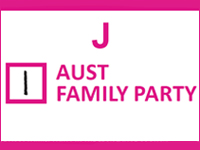The Big Salami
 In his excellent book Blink! Malcolm Gladwell describes how it is possible to weigh up situations in the ‘blink’ of an eye.
In his excellent book Blink! Malcolm Gladwell describes how it is possible to weigh up situations in the ‘blink’ of an eye.
In other words, how to make good decisions in an instant by doing what he calls ‘thin slicing’.
Thin slicing is a concept similar to taking a big salami, and no matter how thin you slice it, everything you want to know about the whole salami is in that one slice.
Often you don’t have time to study or research a situation or a person; you have to analyse what is going on by finding that thin slice.
The Bible uses the term shibboleth for this. Shibboleth is Hebrew for ‘stream,’ and it comes from the Old Testament book of Judges, where Jephthah and the men of Gilead fought the Ephraimites and captured the Jordan River crossing. As people crossed the river, to distinguish who was friend or foe, they had everyone say the word ‘shibboleth’. If they couldn’t pronounce it properly, they knew they were the enemy. From this, the word shibboleth was absorbed into the English language to describe a key identifier or a dead give-away. It would be like hearing someone say, “where did I put my jandals?” You’d know straight away they were a New Zealander. It’s a shibboleth.
In the New Testament, St Paul’s letter to the Colossians describes another form of thin slicing. He writes, “Let the peace of God rule in your heart.” Another translation puts it, ‘Let the peace of God be the umpire in your heart’ – Colossians 3:15.
In other words, weighing up important decisions in the blink of an eye and asking yourself, “Do I have peace in my heart about this decision?”
Or is it like in Star Wars – “I’ve got a bad feeling about this, Obi Wan Kenobi”.
At this election, every voter is asked to cast two ballots – one on a small green ballot paper for the House of Assembly (the Lower House) and the other on a very large white ballot paper for the Legislative Council (the Upper House).
The House of Assembly ballot paper is quite straightforward – simply number the candidates in your order of preference.
The Legislative Council ballot paper however, is not so straightforward. It is nearly a metre long and contains 19 registered political parties or groups above the red line and over 50 individual candidates below the red line.
 Voters can choose whether to vote above or below the line – but not both. Voters can also choose whether to number just one box above the line, all 19 boxes above the line or any number in between. If voting below the line, a voter must number a minimum of 12 boxes.
Voters can choose whether to vote above or below the line – but not both. Voters can also choose whether to number just one box above the line, all 19 boxes above the line or any number in between. If voting below the line, a voter must number a minimum of 12 boxes.
The Australian Family Party has drawn box J on the white ballot paper – J for Jephthah from Judges.
When casting your vote at this election, take a deep breath, close your eyes and let the peace of God be the umpire in your heart.
Authorized by Bob Day Australian Family Party 17 Beulah Road, Norwood SA 5067